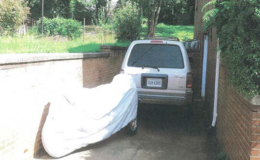Florida Police Can (1) Search Your Car After Smelling Marijuana and (2) Cut a Hole in Your Underwear to Find Drugs (Jevin Hilliard v. Florida)
- By : Cbh
- Category : 4th Amendment, Marijuana

Florida drivers (and those in the car) should be aware that it is fairly well-settled that police have probable cause to search a car and occupants during a traffic stop based on “the faint odor of cannabis.” But how far can the search go?
We find out in Jevin Hilliard v. Florida, where the Appellant was stopped for an un-named traffic violation and police smelled cannabis from the car as well as “a very strong smell of cannabis emanating from him.”
Upon searching the Appellant’s person, the officer felt a “foreign object in Appellant’s clothing.” The officer could “not retrieve the object in Appellant’s underwear by reaching up Appellant’s pant leg and shaking his shorts repeatedly.” Without much detail of the subsequent circumstances, it appears that the officer “cut about a one-inch hole in the underwear and pulled a baggie of methylenedioxymethamphetamine (MDMA) from Appellant’s underwear.”
The court’s analysis can be summarized:
- The odor of burnt cannabis emanating from a vehicle constitutes probable cause to search all occupants of that vehicle;
- The Florida Supreme Court has approved (and gave a name to) a “reach-in” search for drugs under certain circumstances;
- Here, the officer had probable cause because of the odor and was permitted to undertake a more thorough search after a pat down revealed a foreign object.
The concurrence summarized, ” when that frisk revealed the likelihood of contraband in Appellant’s underwear, additional searching including a ‘reach-in’ search was permissible” but did “not opine whether what occurred was or was not a best police practice.”


